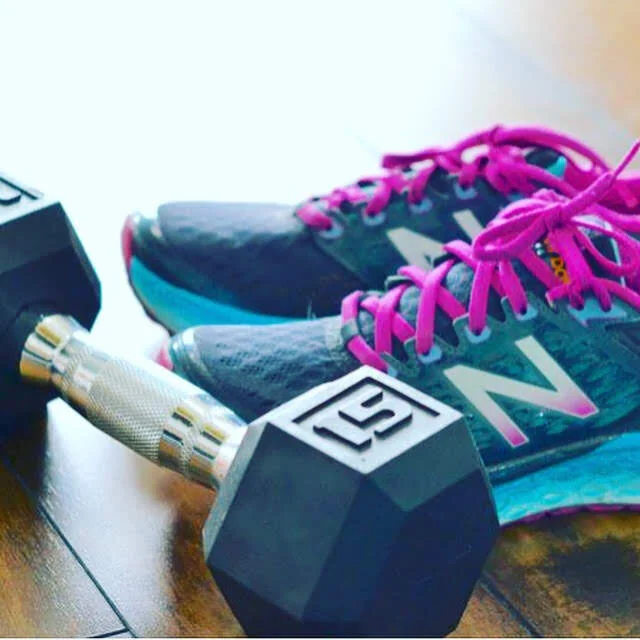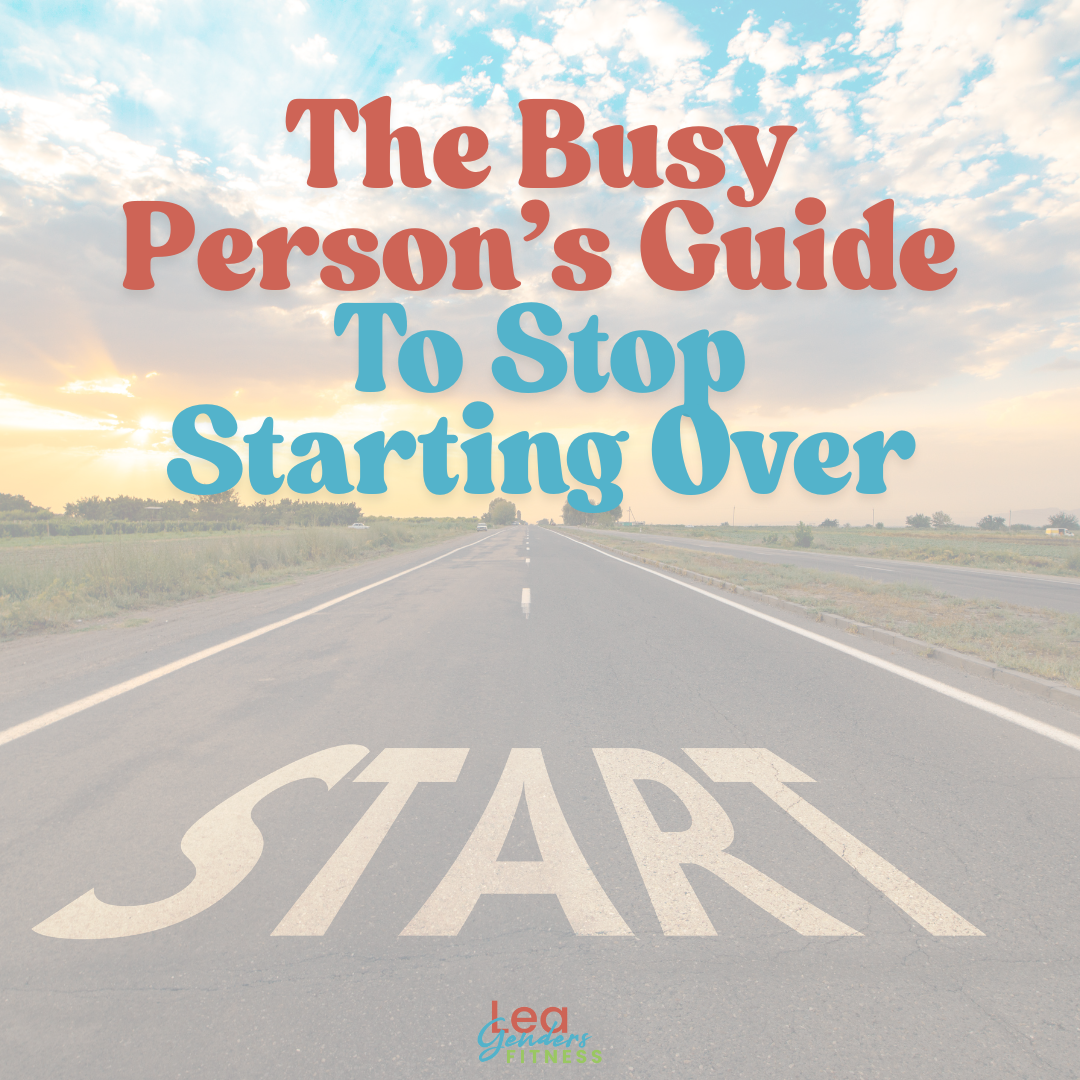It's April and a great time to review those New Year Resolutions. Remember those? How's it going? We've had three months to kick off our new year goals. If you are rocking and rolling then congratulations on being part of the small percentage of people that stick to their New Year goals after March 1st.
If you've struggled to stay committed or forgot all about those goals by now, never fear, we don't have to wait until 2018 to give it another go. April is a new quarter and a perfect opportunity for a new start or a chance to evaluate (maybe change?) those original goals. The truth is if you made big goals for 2017 and they didn't pan out exactly as you hoped, it probably is not your fault. It's the fault of the goal itself. We are human and have certain universal limiting factors. We can make intense goals then try to white-knuckle our way into achieving them using willpower and extreme self-discipline but that hardly ever works. The better way to lasting change is to change the way we set goals.
HOW TO SET GOALS THAT STICK
You know about setting S.M.A.R.T. goals, right? Make sure your goals are Specific, Measurable, Achievable, Realistic and Timely. These are all important factors for goal setting. In a nutshell, instead of saying that your goal is to lose weight, it is better to say that you want to lose 10 pounds of fat in two months by exercising 4 times a week and reducing calories by 250 per day. Be specific as possible with a goal that you can measure, that is realistic and doable within a reasonable timeframe.
The biggest issue with most goals is that they are outcome-based goals alone. It's OK to have outcome-based goals (lose fat, run faster, lift heavier), the problem is that we can't always control the outcomes. We can't wish for our goals to come true, we have to work for them. The trouble is that our bodies can be snarky (yes, it's a word) and sometimes even if it seems we do everything right, we still don't see the outcomes we want in the time we expect. That can be frustrating and cause some people to become disheartened and give up.
Some of that may just be having realistic expectations. If it took you five years to put on extra weight, it's just not realistic to expect that you will lose it in two weeks or two months. Yes, we all want results as quickly as possible, but slow and steady wins the race. The secret sauce is finding the sweet spot between sanity and sustainability. We want to set goals we can achieve over the long term without driving ourselves crazy. Healthy lifestyle includes healthy body and healthy mind. If your goals are making you miserable, interfering with your family and social life or making you feel bad about yourself, it might be time to refine your goals.
SETTING PROCESS GOALS
You set your outcome-based goals (lose fat, run faster, lift heavier, etc.). The next most important thing to do is set your process goals. What are the things you need to do each day in order to achieve your goals? If your goal is to lose fat, then your process-based goals probably would look like something this:
Cardio exercise 3 times a week for 30-45 minutes with one intense interval session, full body strength training 2-3 times a week, 8-10k steps a day and reduce calorie intake by 250-350 calories per day, reduce added sugar intake to under 20 grams a day. (This is just an example, if you are starting from zero, then you would build up to this over time.)
Your goal would be to check off each day or each week that you completed the process goals. At the end of two weeks you might decide to reward yourself (healthfully) for completing all your process goals, even if you didn't see large improvements in your outcome goal.
If you are nailing the process goals, they become habit. When healthy habits are part of your lifestyle they go a long way to helping you achieve those outcome goals. It's about sustainable actions over the long term. It's not what you can do in one hour or in one week, it's about what you can sustain over the long term. In other words, it is better to lose 40 pounds slowly over six months, than it is to starve yourself, lose it quickly and then gain it back because you reached your goal weight and loosened up on your unsustainable practices. Trust me when I tell you I learned this lesson the hard way.
Here is an example: I am studying for my Precision Nutrition Sports and Exercise Nutrition Level 1 certification. I set process goals and outcome goals each week. My goals last week were to study one hour each night for six nights and at lunch three days per week. I planned to complete three chapters in seven days. See how I included both process and outcome goals?
Ollie, my study buddy.
At the end of the week I met my process goals but not my outcome goal. I studied each night and at lunch as I had planned but only completed two out of three chapters because I underestimated the length of the chapters and therefore had unrealistic expectations of my outcome this week. It took me longer to get through chapters 13 and 14 than anticipated. I was tempted to rush through the workbook questions in order to finish faster and possibly be able to get in another chapter this week, but I quickly realized that hurrying through the chapter to meet some arbitrary goal was not serving me and my larger purpose (you know, to actually learn this stuff).
So I slowed down and did what was realistic and sustainable. I am closing in on the end of this certification, so an extra few days or an extra week won't make a difference once I am certified, but slowing down to make sure I learn the material is key to my success with the program. I still consider the week a success because I did the actions I needed to do to meet my long term term goal (pass the certification test).
You see, my outcome goal was unrealistic but I didn't know it until I started the process. This often can happen with our health and fitness goals. Rushing through or trying to speed up the process does not serve us in the long term.
(Edited to include that I passed the certification test!)
ACTION STEPS
Set your outcome-based big goals, then decide on the actions you need to take each day and each week to reach your goals. Then focus heavily on these process-based goals. Judge your success by your completion of the process goals. If you are unable to complete your process goals, make them smaller until they are achievable. Failed to workout for an hour four times last week? This week try to achieve just 30 minutes 3 times. You have the rest of your life to progress forward. Start small for the best chances of success. A 15 minute workout that you completed is always better than an hour workout you didn't have time to do.
It's important that your process goals are sustainable. What can you do every day for the long term without driving yourself crazy?
Experiment and find out and you'll be well on your way to achieving all your goals.
Like this post? It helps me when you share.































Forget the pressure to "end the year strong." This December, I am exploring a different approach: ending the year soft. Learn how compassion, rest, and grace can set you up for a healthier New Year than pushing ever could.